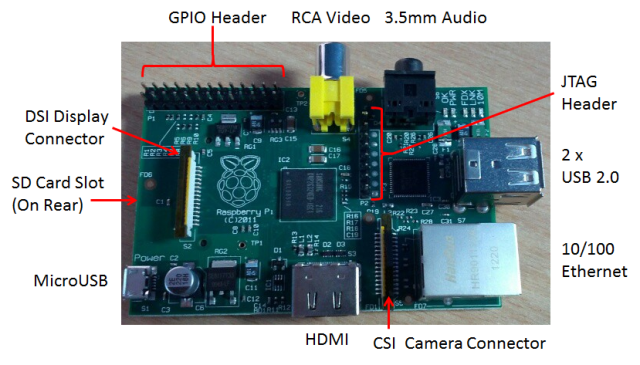SqueakJS Release 1.2.0
23 April, 2024

March 2024 Release 1.2.0 adds FFI and MIDI plugins, JIT for Sista bytecodes, JPEG write prim, fixes keyboard input, copy/paste, scroll wheel, highdpi, allows ES6 in source.
SqueakJS executes Squeak in a web page. It is a fully capable virtual machine implemented in pure JavaScript running unmodified Smalltalk images. Check it out at https://squeak.js.org/.
Squeakfest 2013 in Uruguay
23 May, 2013
It’s that time again. Time to pack up the kids and join us at SqueakFest 2013. Don’t forget to bring your XO computer!
If you can’t make it please consider a donation to help cover travel costs: Donate
For more information see: Squeakfest 2013
From Rita:
There will be a Squeakfest again in Uruguay at June, 7th – 9th, this time in Atlantida. Etoys will cover the major part of the event, but there will also be workshops in Python, turtle art and robotics. After all, Uruguay is the country with XO-laptops in every elementary school and teachers are using the software which comes with Sugar.
http://squeakfest2013.weebly.com/
From our education team, Randall Caton and myself are going to present Etoys workshops. This year, I’ll introduce Kedama. I’m looking forward to an inspiring event!
If you want to help or know someone who would like to, I created a crowdfunding page to collect money to help to cover our travel cost. Please share as you like!
http://crowdfundedu.com/fundraiser/educators-to-squeakfest
Greetings,
Rita
What does the future hold for Pi
27 March, 2013

From BetaNews: (see full article here: What does the future hold for Pi)
BetaNews: What does the future hold for the Pi — new versions?
Liz Upton: The Foundation’s committed to making sure that we don’t suddenly up-sticks and change the platform under people’s feet: the open community has been very good to us, and the last thing we want to do is to make the work they’ve done on the available software redundant. We want to continue selling the Raspberry Pi Model B for a good long time yet; we do have a final hardware revision to make, but the platform will be set in stone after that. We don’t have plans to make a new Pi at the moment; what we are putting a lot of effort into is improving the software stack. We reckon there are orders of magnitude of performance increases we can shake out of Scratch, for example; and this isn’t stuff you can expect the community to do, because it’s a very long and fiddly job. So Scratch, Wayland, Smalltalk: you should see some big improvements coming over this year. We’re also switching a lot of our concentration to our educational mission this year, after a year spent scrambling to get on top of manufacture.
Feeding the Mouse some Pi
19 March, 2013
Tim Rowledge announced:
Squeak 4.0 & 4.4 packages now available for RISC OS (on Raspberry Pi for example) at http://squeakvm.org/riscos
Pythagoras Formula in Squeak Etoys
13 March, 2013
Bert posted a youtube video as a response to a newbie question:
For her third language she chose Squeak, since she knew that Scratch was written in it. I would like to have her write the “Hello Pythagoras” program using Morphic objects, in a visually appealing way. So far I have had some trouble finding a tutorial that covers relevant information. I am sure I can figure this out by poking around long enough but if anyone has a pointer to documentation that might help, or a similar example, that would be great and much appreciated
Here is Bert’s terrific answer!
Squeak Board candidates wanted
20 February, 2010
Göran Krampe has begun the process for this year’s elections for the Squeak Oversight Board.
The Squeak Oversight Board (SOB) consists of seven members from our community, all of whom are elected by popular vote. The members are responsible for
- building a legal presence – currently by working with the Software Freedom Law Center as part of their Conservancy;
- providing the network services that support the various mailing lists and repositories that in turn make a community possible;
- helping coordinate the various interest groups and projects being pursued by Squeakers;
- making decisions where there is no clear community consensus.
The current board members are:
- Jecel Assumpcao Jr
- Ken Causey
- Bert Freudenberg
- Craig Latta
- Andreas Raab
- Randal Schwartz
- Igor Stasenko
(From http://www.squeak.org/Foundation/Board)
The schedule and process of the Election is as follows:
Nominations
Candidates should nominate themselves by 3rd March and start their campaign on the squeak-dev mailing list. Or if you nominate someone else, make sure that person really wants to run. Göran will not put anyone on the candidate list until that person makes it known on squeak-dev that he/she does run.
Final candidate list
The list will be closed on 3rd March. The candidates should ideally present themselves on squeak-dev, unless they have already done so, and the community can ask questions.
Online election starts
The voting period starts on 10th March 6PM (18.00 UTC) and is one week long. Ballots are sent out via email.
Online election ends
The voting process will end on 17th March 6PM (18.00 UTC). Results will be announced immediately when the election ends.
Registering
If you were invited to vote last year you are already on the voter list, no worries! If you are a new Squeaker and wish vote do ONE of the following:
- Get a “known” Squeaker to vouch for you. If a known Squeaker sends an email to voters@squeak.org giving your name and email address then Göran will add you.
- Send an email to voters@squeak.org yourself (and CC to squeak-dev if you like) with information/arguments showing that you are indeed serious about voting and that you are indeed a Squeaker.
When the voting period starts all voters will receive an email with instructions and a link to the voting website.
More information
Everything about the election, including schedule above and more, can be tracked here:
Scratch featured in “Communications of the ACM”
20 November, 2009
Scratch is the cover story of the November 2009 issue of CACM, the monthly magazine of the Association for Computing Machinery.
Scratch is a visual programming language, developed in Squeak, that makes it easy to create interactive stories, animations, games, music, and art — and share these creations on the web. Aimed at children between the ages of 8 and 16, Scratch has developed a thriving community, with over 1000 new projects being uploaded to the site every day.
In inviting the Scratch team to submit an article, the editor of CACM explained his motivation: “A couple of days ago, a colleague of mine (CS faculty) told me how she tried to get her 10-year-old daughter interested in programming, and the only thing that appealed to her daughter (hugely) was Scratch.”
The submitted article is also available for viewing online.
Squeak goes to Mars
8 January, 2009

Esteban Lorenzano gave Squeakers on Mac OS X a nice little Christmas present to see out 2008, with the release of Mars, an MVC framework for Squeak built using Cocoa. Mars is a plugin, and will run in any fork of Squeak, and as you can see above, is integrated with OmniBrowser.
Esteban notes that one of his main objectives in developing Mars is to keep it small and simple, in order to allow it to be executed in small environments such as the iPhone, (using John McIntosh’s new VM and Edgar de Cleene’s SqueakLightII minimal images).
Mars is MIT licensed, and can be downloaded from the Mars homepage, which also has posts following the progress of Esteban’s work. Esteban adds that Mars is still in the pre-alpha stage, and he looks forward to bug reports, feature requests, comments, and of course, code.
Building user interfaces in Squeak
24 December, 2008

Chris Muller has released a thoroughly updated and documented version of his user interface framework Maui. Chris has described Maui as a “naked objects” Morphic-based UI builder that allows rapid UI creation based on object-message composition.
Maui includes a number of light satellite frameworks that supply various application services like documents, object-search, background process management with progress monitoring. It also provides a number of tools which allow applications to be synthesized quickly, without the need to write any user-interface code.
Chris has written a fifty page document describing Maui and giving examples of how to use it to build user interfaces for complex applications. In this document he also discusses future work for Maui, including the tantalising possibility of extending it to support the development of web applications.
Aliens coming to Squeak
8 December, 2008

John McIntosh has ported Newspeak‘s Aliens FFI implementation to Squeak. John notes that the port is in its early days, and more work and support will be needed to implement Aliens support across the full range of Squeak platforms.
As a result of this interest in Aliens, Gilad Bracha has written a post giving an overview of Aliens, the thinking that went into it, and how it works. FFI allows a programming language to make use of services written in another language, and Gilad suggests that the lack of a standard, fully-featured FFI has been an ongoing problem for Smalltalk developers. In particular, John writes that “Squeak VM’S existing FFI has been found to be buggy bloated and slow” (though see Andreas’ comments on this below).
John’s code, under the Apache licence, is available at http://www.squeaksource.com/Alien.html, and more information on his implementation can be found at the Alien swiki page.



